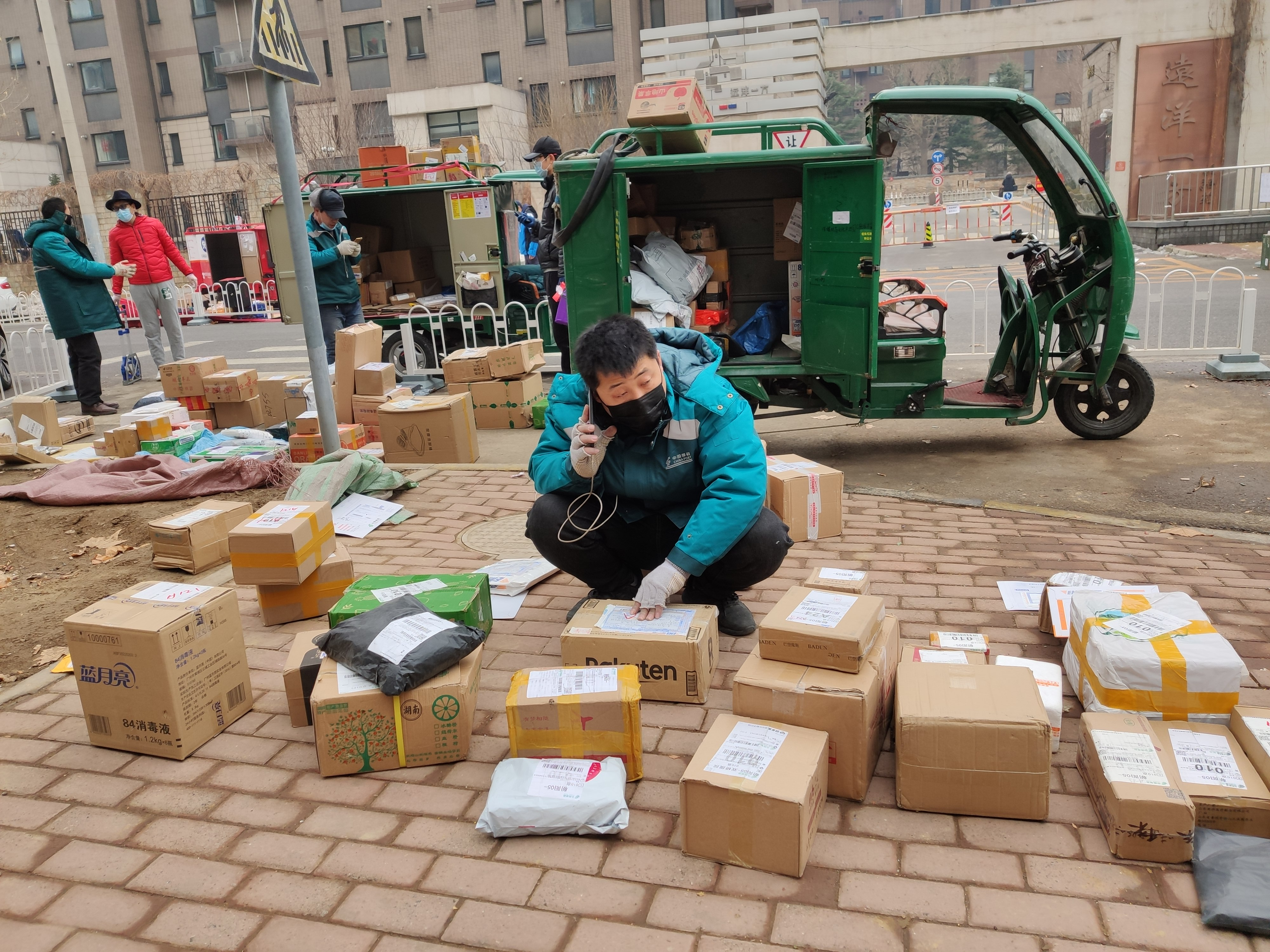
A SF Express deliveryman takes parcels from the trike, Qingdao, Shandong Province, November 16, 2019. /VCG
A SF Express deliveryman takes parcels from the trike, Qingdao, Shandong Province, November 16, 2019. /VCG
Parcel-delivery companies saw a decline in revenues in January, due to shrinking business volumes during the Spring Festival holiday and the ongoing coronavirus epidemic, according to a report from the State Post Bureau.
Revenues fell 16.1 percent year-on-year to 50.05 billion yuan (about 7.15 billion U.S. dollars) last month.
Courier companies handled 3.78 billion express parcels, down 16.4 percent year-on-year.
The report also showed that the business revenue of the country's postal services slid 12.4 percent from a year earlier to 74.75 billion yuan.
The bureau forecast in January that about 74 billion parcels are likely to be handled in 2020, up some 18 percent from 2019, while total business revenue might grow 16 percent year-on-year to 866 billion yuan.
China saw about 63 billion express parcels handled in 2019, up 24 percent year-on-year. Business revenue expanded 23 percent to stand at about 745 billion yuan.
The country has remained the world's largest express delivery market for six consecutive years, with some 20,000 express delivery enterprises and more than three million employees.

A China Post deliveryman makes phone calls to ask people to collect their parcels outside a residential compound in eastern Beijing, February 20, 2020. Wu Gang/CGTN
A China Post deliveryman makes phone calls to ask people to collect their parcels outside a residential compound in eastern Beijing, February 20, 2020. Wu Gang/CGTN
Delivery service back in order
As of February 22, China Post, SF Express and JD Logistics have completely resumed business, and the resumption rate of other courier companies reached 66.7 percent, according to the Ministry of Transport.
The ministry, together with the State Post Bureau and China Post, has taken a slew of differentiated measures to ensure the normal delivery in different areas during the special period, instead of "one size fits all".
For low-risk areas, normal delivery order should be fully resumed. Medium-risk areas should allow the deliverymen to enter the community and other management areas, on the basis of proper health protection. High-risk areas should provide relevant convenient measures for deliverymen instead of totally forbidding delivery,said Wu Chungeng, director of Policy Research Office of the Ministry of Transport.
Many courier companies are also using "non-contact delivery" to reduce contagion risks, with the deliverymen putting orders in a self-collection container.
(With input from Xinhua)